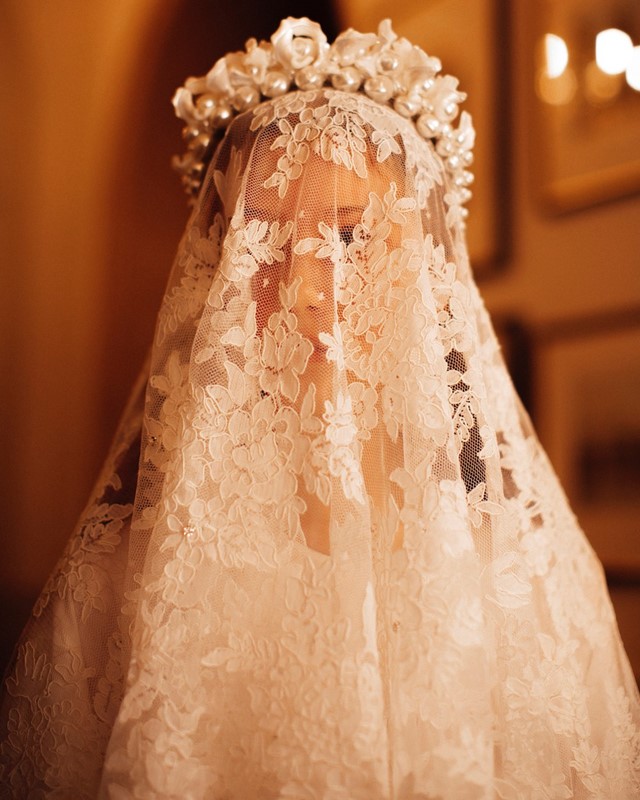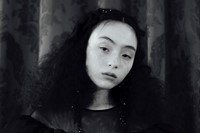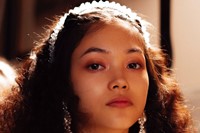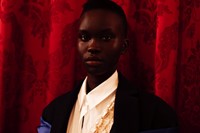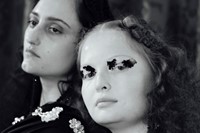Birth, life, loss: Simone Rocha’s A/W20 collection mused on the rituals that define our lives, initially inspired by John Millington Synge’s Riders to the Sea – a tragic play set on Ireland’s Aran Islands
The Aran islands sit off the coast of the west of Ireland’s County Galway – a stretch of primordial coastline so ferocious it is deemed the ‘Wild Atlantic Way’. Accessible only by boat, the remote, windswept islands have nonetheless retained a small and hardy community, which once made its trade fishing the treacherous waters. This oftentimes fatal pursuit would birth the islands’ most famed export: the Aran jumper, which traditionally saw each family create their own unique stitch for the macabre practicality of identifying the bodies of loved ones when they washed back to shore.
Such provides the basis for Dublin-born playwright John Millington Synge’s Riders to the Sea – and yesterday, Simone Rocha’s Autumn/Winter 2020 collection, which saw the designer cite the 1904 play as inspiration. In it, a woman from the Aran isle of Inishmaan grieves her husband and sons, each drowned at sea. It is a play not simply about the towering power of nature over man – and the resilience of the human spirit – but also of the rituals we use to cope with loss. Ritual, in its various forms, has long elucidated Rocha’s emotive work; last season, she evoked the Irish tradition of ‘Wren Boys’, who wear intricately wrought straw costumes to collect money from Ireland’s aristocratic houses on Saint Stephen’s Day, the day after Christmas.
Here, Rocha suggested a wider remit: “procession, baptism; birth, life and loss,” read the poetic notes which accompanied the show. They are the rituals which define all of our lives, but have long been particularly resonant for women, who often bear the brunt of the emotional and phsyical labour such landmarks require. Here, delicate layers of cream, ivory and white – whether lace-edged poplin shirt dresses, tulle skirts or satin coats, edged with pearls and tied with ribbons – suggested christening or confirmation gowns. Nautical motifs were cleverly interwoven: twisting shards of Aran-knit jumpers, woven rope bags, rich blue silk sashes and earrings, cascading from models ears.
But such swathes of colour – royal purples and reds were later incorporated – also suggested the richness and colour of ecclesiastical garb. One gown was printed with the name of Saint Malachy, the Archbishop of Armargh who is often attributed as the author of the ‘Prophecies of the Popes’, which suggested there would only be 112 more popes until the Last Judgement. Indeed, in the lavish satins and proliferance of embroidery, the collection did sway towards an almost papal richness – after all, which religion is quite as fond of ritual, and its requisite pomp, than the Catholic church? After the show, Rocha herself admitted that “you can’t look at Ireland and not be influenced a little bit by Catholicism”. The final looks, in pure white, were veiled. The models walked down Lancaster House’s central hall like hooded brides – or perhaps the figure of the Virgin Mary herself, veiled in prayer or mourning.
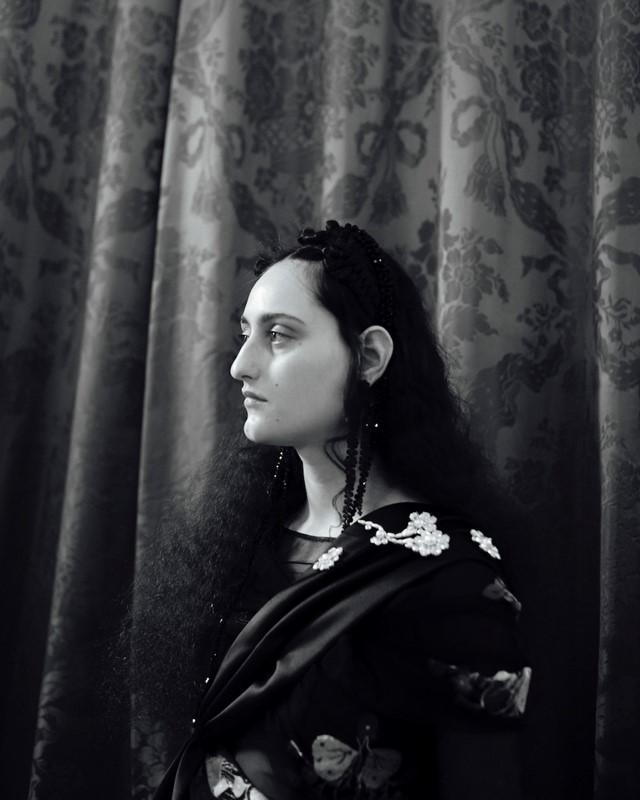
Such interweaving threads of meaning imbue Rocha’s clothing with a sort of romantic melancholy; each of her collections are deeply felt. But her power as a storyteller is equalled by her astute hand as a designer of clothing: take the layers apart and her clothing is both covetable and wearable. You needn’t look further for this than the front (or indeed any) row at her show, where women of all different ages, backgrounds and styles are wearing her clothing in myriad different ways. That – the ability to divine how women think, and fantasise about, the clothes they choose to wear – is Rocha’s true magical power.
